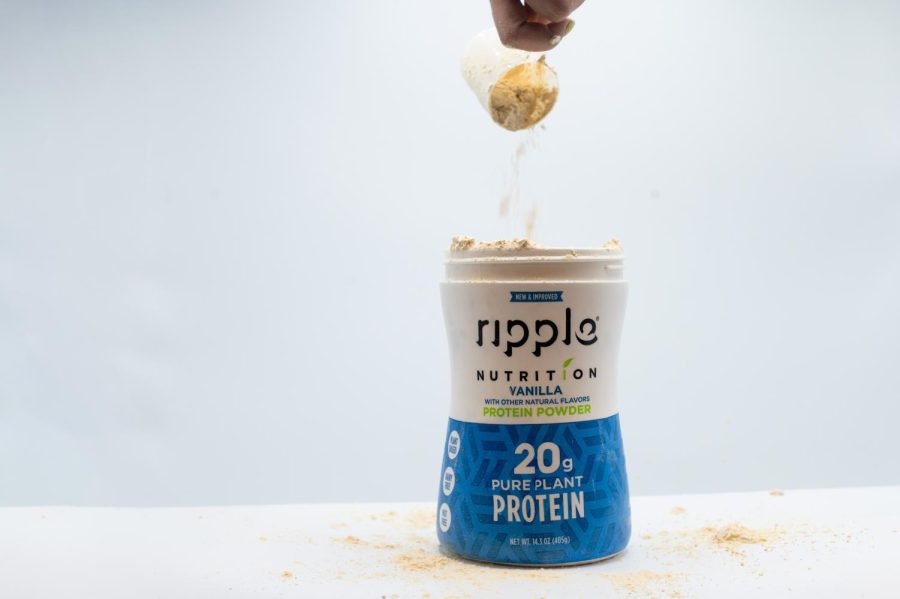Protein powder provides unnecessary diet supplement
While protein is an essential component of a diet, supplements, such as protein powder, are unnecessary.
January 17, 2023
Baseball captain Sohrab Rezaei, a senior, is a constant presence in the school fitness center after classes have ended. He works out seven days a week, but that’s only part of Sohrab’s fitness routine. His diet is also a crucial part of his regimen as a varsity athlete.
“I’m always trying to eat. Whatever I can get my hands on I’m going to eat it,” Sohrab said. “What you eat is important. If you’re eating salad every day you’re not going to gain mass.”
Sohrab also supplements his diet with protein shakes. This is a protein supplement blended with a few other ingredients, generally fruit and some kind of nut butter.
Protein in a diet is a good way to reach one’s fitness goals, and according to Medical News Today protein helps build muscle, repair tissue and even lose weight. However, it is absolutely not necessary for most people to use protein supplements, including protein powder, to get enough daily.
Protein in your diet helps a person build muscle mass by enabling them to exercise more and with greater intensity than they would be able to otherwise.
According to P.E. teacher Thomas Piane, it’s fairly easy to increase protein in your daily diet without any supplements.
Mr. Piane said, “You don’t need that much protein to get that effect. You can get it all through your diet. You could still get good protein from plant-based proteins, but really you want it to be meat, fish, eggs, dairy — stuff like that.”
P.E. teacher Pete Miller said that while plant protein can be used more effort is required to get the desired effect.
“Plant proteins can be combined to make a protein profile that’s equal almost, if not fully equal, to animal proteins,” Mr. Miller said. “But that requires a little bit of knowledge on most folks’ parts to know how to.”
It can take a lot of effort to get enough protein just from diet. Some student athletes choose to use supplements as an easy way to ensure you get enough protein day to day.
“It’s a lot easier to get protein using protein powder than trying to center your meals around protein,” said junior Poppy Beiser, a multi-season varsity athlete.
There are concerns over possible risks surrounding too much intake of protein. There isn’t currently a clear consensus on these problems in the scientific literature on the topic.
“I haven’t really heard tons of risk of getting too much protein,” Mr. Piane said. “I’ve heard about possible kidney damage, but that data’s not really there.”
According to the National Library of Medicine, risks surrounding a substantial excess of protein in one’s diet include bone, liver and kidney damage.
Talking to a nutritionist or even a P.E. teacher about how to safely improve your diet is an ideal way to reach a dietary goal.
“I need to gain weight for baseball,” Sohrab said. “So my mom got with a nutritionist and she came up with a protein plan for me, and I started having protein shakes to help me gain mass.”
If a student has a particular fitness goal they want to meet, and they’re informed about the nutritional science behind protein powder, it can be a great tool.
“I’m pretty serious about running, and weightlifting is an important aspect for sprinting,” Poppy said.
Most people can meet their dietary goals through normal food without the need for supplements. But for those who choose to use it, moderate consumption of protein supplements can make planning out an already stressful day a little bit easier.





























































Carolyn Banner • Jan 18, 2023 at 10:55 am
Next time there’s an article about nutrition, it would be smart to interview a Registered Dietitian as they are the professionals with the most education and training in food and nutrition.